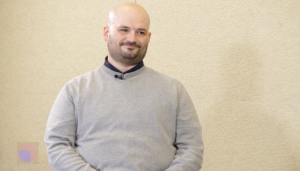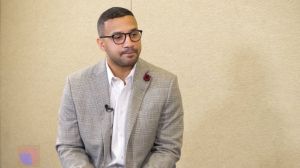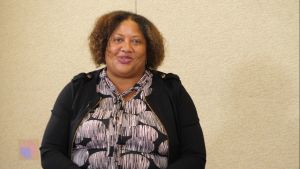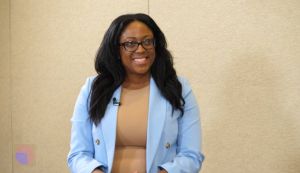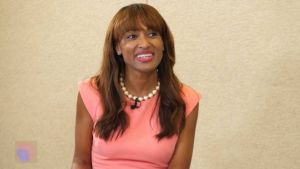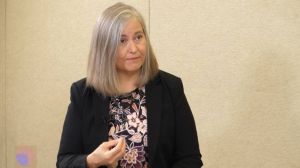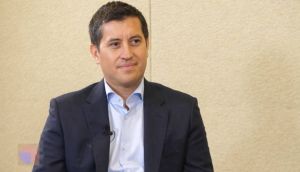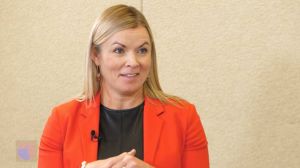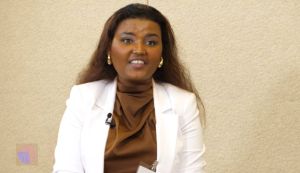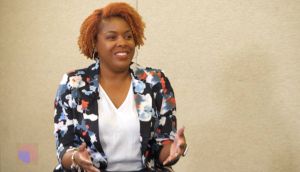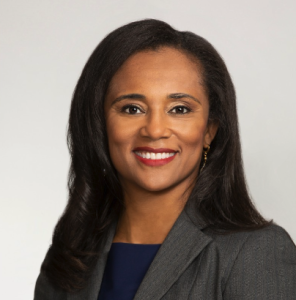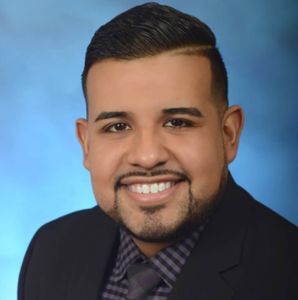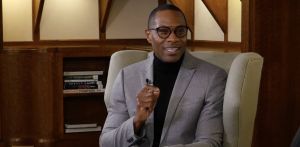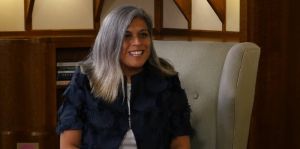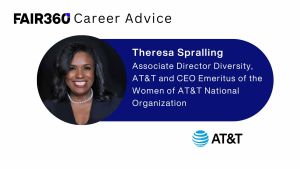“Each year Humana’s Veterans Network Resource Group (VNRG) develops specific goals centered around community, careers, and how we can provide added value to the business,” says Best, Senior Talent Management Professional and Veteran Hiring Initiative Leader at Humana.
David has been with Humana for slightly over 5 years. After serving a lengthy and successful Army career with multiple overseas deployments, he retired from active Army service and transitioned directly into Humana. He has served in three roles at Humana. As a Process Consultant, as an Operational Readiness Manager for a Lean Start-Up, and in his current role as Humana’s Veterans Hiring Initiative leader.
David has a graduate degree in Computer Resources and Information Management from Webster University in Missouri and is a certified Lean Six Sigma Black Belt. His Talent Management background spans over 22 of his 32 years of active Army service.
He served in positions of increasing responsibility worldwide with his last position as the senior Army retention director for the Afghanistan Theater of Operations.
When he’s not enjoying the company of his wife, sons, and dog, David spends his free time reading, pursuing outdoor activities, and computing.
DI: Please describe Humana’s military recruitment/outreach initiatives.
Humana has a deep commitment to the veteran and military spouse population. As a longtime partner to the Department of Defense’s TRICARE program, Humana currently administers health benefits for more than 6 million active duty military and retirees as well as their families across 32 states.
Since the inception of TRICARE in 1996, Humana has worked to improve the lives entrusted to our care by partnering with the Government to create the right access, better health outcomes, and simplified experiences.
As part of our relationship, we actively seek veterans and military spouses because we understand they’re part of a distinct and highly skilled professional talent pool.
In response to a request from President Obama to corporate America, we launched our Veterans Hiring Initiative in August 2011 with a commitment to hire 1,000 veterans and military spouses by the end of 2014. We completed the first 1,000 hires in December 2012, which led to the launch of our Veterans Network Resource Group (VNRG). Because of the success of our effort, we recommitted to an additional 1,000 hires by the end of 2015. We achieved that goal in May 2014. Beginning in 2015, we made an ongoing commitment to hire 500 veterans and military spouses annually. In addition to this, we put a focus on hiring Wounded Warriors. Since the start of our initiative, we’ve hired over 4,500 veterans and military spouses.
To help maintain our commitment, we have a talent manager dedicated to veterans and military spouses. This role provides national outreach through partnerships with organizations serving veterans and military spouses. We send a list of open roles twice monthly to our partners as well as provide career coaching, resume and interview assistance, and advocacy to recruiters and hiring managers. The talent manager works with recruiters and hiring managers to bridge the gap on translation of military skills to the corporate environment. We have developed a specific training module as well for recruiters and hiring managers that helps them understand the value of the veteran in the corporate workplace.
DI: Is there a specific onboarding process after hiring veterans (and Guard and Reserve members)?
Each year Humana’s Veterans Network Resource Group (VNRG) develops specific goals centered around community, careers, and how we can provide added value to the business. As part of our 2017 VNRG goals, we built an innovative onboarding experience for our new veteran and military spouse hires. Now, when we hire a veteran or military spouse, they have an opportunity before they start their first day in the organization to be paired with a volunteer from the VNRG known as a Pathfinder; the volunteer connects with them and facilitates their assimilation into our family. During the associates’ first three months with Humana, they will have contact with their Pathfinder a minimum of seven times. As of November 2018, we made more than 350 pairings.
For 2019, we plan to implement a quarterly event where all of the new veteran and military spouse hires can discuss their onboarding experiences as well as learn more about Humana.
DI: Can you describe the programs you have in place to develop military talent?
Currently we have quarterly town halls specializing in topics of interest to our members. For 2019, we will be more intentional about career development by holding twice-monthly lunch-and-learns. We will have a development theme each month of the year.
DI: What is the Veterans NRG’s role in military recruitment/outreach initiatives?
Our VNRG is instrumental in promoting the hiring of veterans and military spouses. Members act as ambassadors wherever they are located and refer veteran/military spouse talent to the program manager of the veterans hiring initiative. We also invite members to attend career events with the talent acquisition team as well as represent Humana at veteran events.
DI: Talk to us about the transition process and career development. How has Humana’s focus on military members helped you with your career?
While I was winding down my 32-year active military career, I knew I had no understanding of corporate America. I dropped out of high school and joined the Army when I was 17. I was fully institutionalized, so to speak, and had a lot of anxiety thinking about how I would take care of my family when I came to the end of my military career.
My journey through the military helped me to understand the value of education. I left the service with a graduate degree in a technical subject as well as a certification as a Lean Six Sigma Black Belt.
Because of these qualifications, I had a bit of an easier time translating my military work into corporate language. I was able to show success metrics that transcended the military environment and equally applied to the corporate environment.
When I joined Humana I was fortunate to have as my leader a woman named Laura Padgett. She knew I was coming in to the team with no corporate experience. While having no military association herself, she intuitively knew I would need a little extra assistance with my assimilation into the corporate world. She cared about me and took it upon herself to mentor and develop me into someone with lots of corporate potential. I still consider her a mentor today, and I reach out to her from time to time for professional advice.
One thing that has stuck with me since my first day at Humana is how much they care about our veteran population. In the first year of my Humana employment, people that knew I came from the military directly to the corporate environment took extra time to help me develop and understand the corporate space.
After I had been with Humana for about 6 months, I had a chance meeting with a military veteran who was involved with our Veterans Network Resource Group. He helped me to understand the VNRG mission, and I joined right away. I volunteered my time and abilities to help grow myself and others. Because of my work with the VNRG and company-wide exposure, it led me to apply for the current role I have today working with veterans and military spouses seeking employment with Humana.
I directly credit our VNRG for helping me to have a solid second career. The networking opportunities, the volunteering opportunities and the relationships have inspired me to become more involved. Because of my involvement with our VNRG, I’ve been able to pay back what has been given to me during my time here at Humana.


